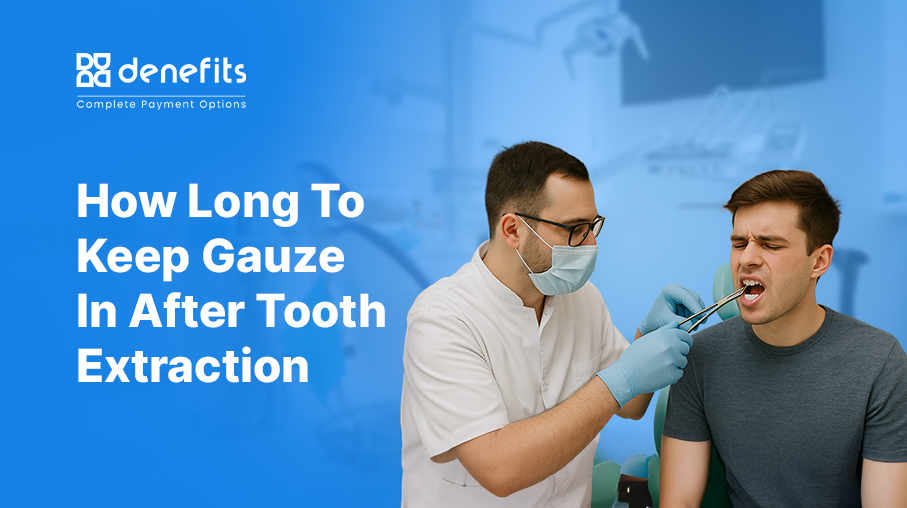
Quick Answer
While you can’t kill a tooth nerve in 3 seconds permanently at home, there are ways to manage the pain quickly till you get to the root of the issue (literally).
These include:
- Cold compress
- Saltwater rinses
- OTC pain relief
- Clove oil
- Garlic application
Now let’s unpack it all.
That Tooth Pain Is Not Just in Your Head.
Have you ever had one of those weird dreams where your teeth fall out? Yeah, those are common. Creepy, but painless. Now in real life? Tooth pain can be brutal. It’s not always a slight stingy feeling, sometimes, it’s a sharp nerve-zapping sensation.
And if you’re Googling “kill tooth pain nerve in 3 seconds permanently,” it’s probably because you’re either:
- In serious pain right now
- Or have been there enough times to know you never want to be again
While treating the cause takes time (dental procedures, root canals, etc), there are ways to subdue the pain fast. Let’s start with understanding what’s causing the pain in the first place.
Common Causes of Toothache (Even If You Just Woke Up With It)
Sometimes, you wake up and BAM, a sharp tooth pain out of nowhere. You didn't chew anything hard. You didn’t even touch sugar the day before. So why?
Well, here’s the thing, the cause may have been building up quietly for days or even weeks. Some common reasons include:
- Exposed tooth nerve: When the enamel or gum wears down or there's a cavity deep enough, your tooth nerve can get exposed. That nerve is super sensitive and reacts hard to cold, heat, sweets, or even air.
- Broken tooth exposed nerve pain: If you cracked a tooth while eating or grinding your teeth, it may leave the nerve vulnerable and lead to stabbing pain.
- Infection or abscess: This one’s serious. When bacteria reach the pulp inside the tooth, you get inflammation, infection, and sharp throbbing pain that won’t quit.
- Worn-out fillings or tooth grinding (bruxism): These may not seem serious at first but can gradually lead to nerve exposure and ongoing discomfort.

Removing gauze too early could lead to dry socket. 😬
Find out the exact timing and avoid painful setbacks.
Home Remedies for Soothing or Killing Tooth Nerve Pain (Temporarily)
Now, if you’re wondering, how to kill nerve in the tooth or how to stop exposed nerve tooth pain, here are home remedies that can help subdue the pain, not cure, but manage it till you see a dentist.
1. Clove Oil – Nature’s Numbing Agent
- Why it works: Clove oil contains eugenol, a natural anesthetic and antibacterial.
- How to use: Soak a cotton ball in clove oil and gently press it against the painful area. Or mix clove oil with a carrier oil like olive oil and dab it on the gum line.
- How it helps: Provides temporary relief from exposed tooth nerve pain by numbing the area.
- Best for: Exposed nerve tooth, broken tooth exposed nerve pain relief.
2. Saltwater Rinse – The Simple, Reliable Fix
- Why it works: Saltwater helps flush out bacteria, reduce inflammation, and keep the area clean.
- How to use: Mix half a teaspoon of salt in a glass of warm water and swish it in your mouth for 30 seconds.
- How it helps: Offers short-term pain relief and keeps infection at bay.
- Best for: General toothaches, mild exposed nerve pain.
3. Cold Compress – The Quick Freeze for Pain
- Why it works: Cold numbs the nerves and reduces inflammation.
- How to use: Wrap a few ice cubes in a towel and apply it to your cheek on the painful side for 15 to 20 minutes.
- How it helps: Interrupts the pain signals and calms the swelling.
- Best for: Sudden, sharp pain due to exposed nerve or cracked tooth.
4. Garlic Paste – The Old School Antibiotic
- Why it works: Garlic contains allicin, which is antimicrobial and anti-inflammatory.
- How to use: Crush a garlic clove into a paste and apply directly to the affected area.
- How it helps: Fights infection and dulls the pain, especially if the ache is due to an infection near the nerve.
- Best for: Nerve-related tooth infections or inflamed gums.
5. Over-the-Counter Painkillers – When You Need It Now
- Why it works: NSAIDs like ibuprofen reduce inflammation and block pain signals.
- How to use: Follow the recommended dosage on the label. Don’t overdo it.
- How it helps: Fast-acting relief, especially for pain caused by nerve inflammation.
- Best for: Any form of moderate to severe tooth nerve pain.
But Here’s the Truth: You Can’t Fix This at Home Forever
All those quick hacks? Great for temporary relief. But to kill the tooth nerve permanently and actually get rid of the pain for good, you need to see a dentist.
Especially in these scenarios:
- If your tooth pain comes back again and again
- If the pain is throbbing, sharp, or comes with swelling
- If you have a cracked or broken tooth and exposed pulp
- If you're experiencing sensitivity that doesn’t go away even after days
- If you feel pain when you bite down or eat something sweet
How Does a Dentist Kill a Nerve in Your Tooth?
Here’s what happens at the clinic:
- Root canal treatment: This is the most common way. The dentist removes the infected pulp (where the nerve lives), disinfects the area, and seals the tooth.
- Tooth extraction: If the tooth is beyond saving, they might pull it out completely.
- Dental fillings or crowns: For minor issues where the nerve is irritated but not infected, your dentist may seal off the exposed part.
What About Cost? Yeah, That’s a Real Concern.
A root canal or crown can cost a few thousand bucks depending on where you live. And if you're skipping it because of money? Totally understandable. But here's the deal: ignoring nerve pain only makes things worse, more painful, and honestly, more expensive later on.
Good News? You Don’t Have to Pay It All Upfront.
Pragmatic ways to afford a dentist appointment or treatment like Denefits Payment Plans can help. What it does is let you split the cost into smaller monthly payments. And you can opt for it even if your credit score isn’t in the best shape. A simple, flexible payment option to get treated when you need it, not when your wallet allows it.

Final Takeaway: Don’t Wait Till It Gets Worse
If you're searching for how to kill tooth pain nerve in 3 seconds permanently, it probably means you’re in serious discomfort.
Remember this:
- Home remedies are great for a quick fix
- You can soothe an exposed nerve tooth temporarily
- You can even reduce inflammation and sensitivity for a while
But to really end the pain? You need to get to the cause and treat it properly. Because that nerve isn’t going to heal itself.
Frequently Asked Questions
1. Can I really kill a tooth nerve at home?
Nope. You can only soothe the pain. Kill tooth nerve permanently? That needs a dentist, usually through a root canal or extraction.
2. What helps with exposed nerve tooth pain fast?
Clove oil, cold compress, and OTC meds help. So does avoiding anything too hot, cold, or sweet. But if the nerve’s out there, it’s not going to settle down till it's treated.
3. How long can I go with a broken tooth and exposed nerve?
Not long. The longer you wait, the higher the risk of infection, abscess, or permanent damage. Don’t wait on this one.
4. Why does my tooth hurt all of a sudden even if I didn’t eat anything?
Could be a nerve reacting to pressure, temperature, or infection brewing under the surface. Exposed tooth nerves don’t always need a trigger, they can ache on their own.
5. Are there affordable ways to fix nerve pain without insurance?
Yes. Look into payment plans by Denefits, or check with your dentist about in-house financing.
6. Will bleach kill a tooth nerve?
Please don’t try this. Seriously.
Bleach is toxic, and using it anywhere near your mouth can burn your gums, damage tissue, and make things worse, fast.
It won’t kill the tooth nerve in any safe or reliable way. If you’re in that much pain, see a dentist instead of experimenting, because bleach belongs in cleaning supplies, not your mouth.
7. Will pulling a tooth stop nerve pain?
Yes, but only if that’s what’s actually needed.
Tooth extraction removes the entire tooth and its nerve, so the pain ends for good.
But it’s not always the first choice. A root canal can save the tooth and kill the nerve, without pulling anything.
Either way, you need a dentist to check what’s best for your situation.



